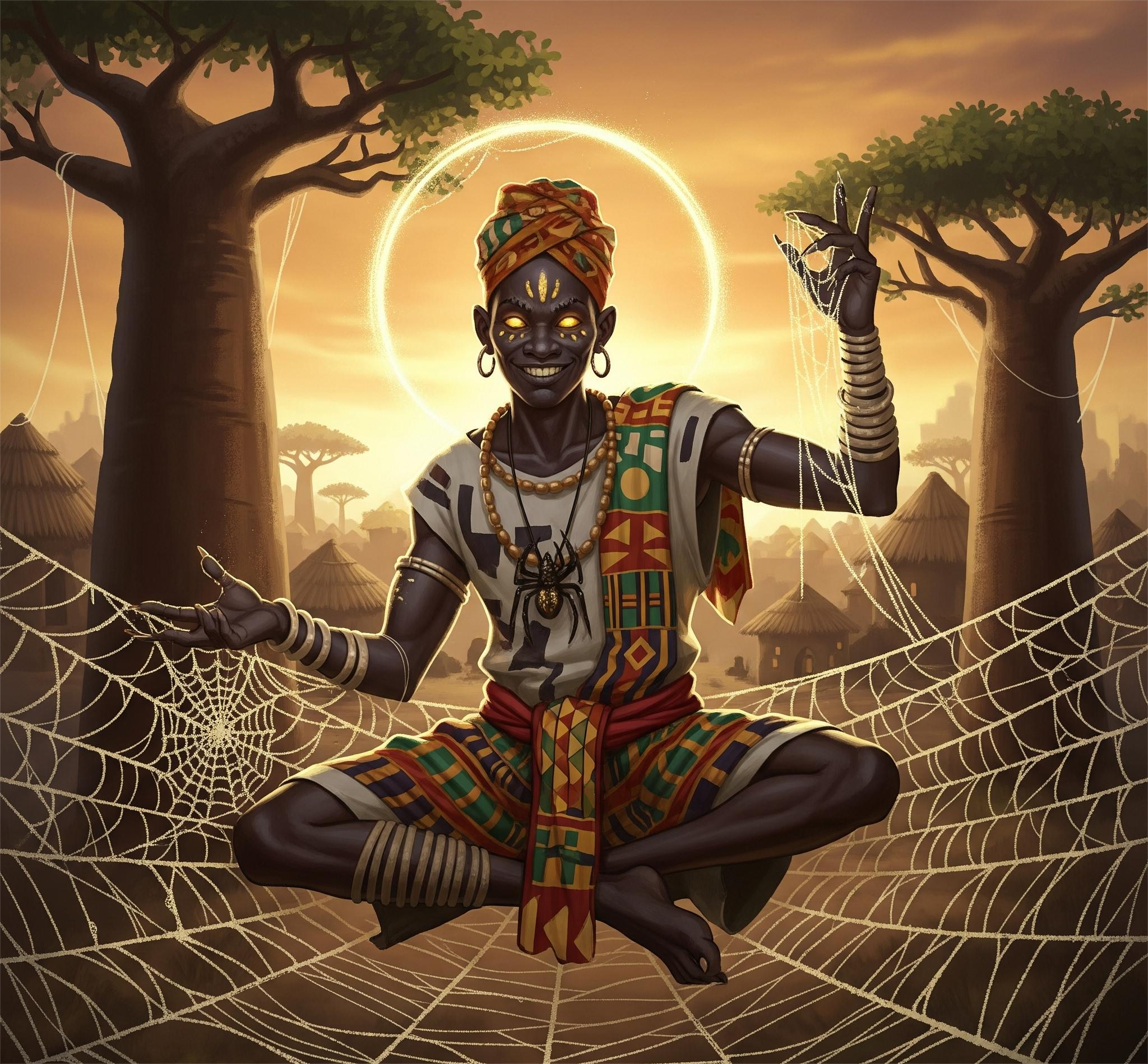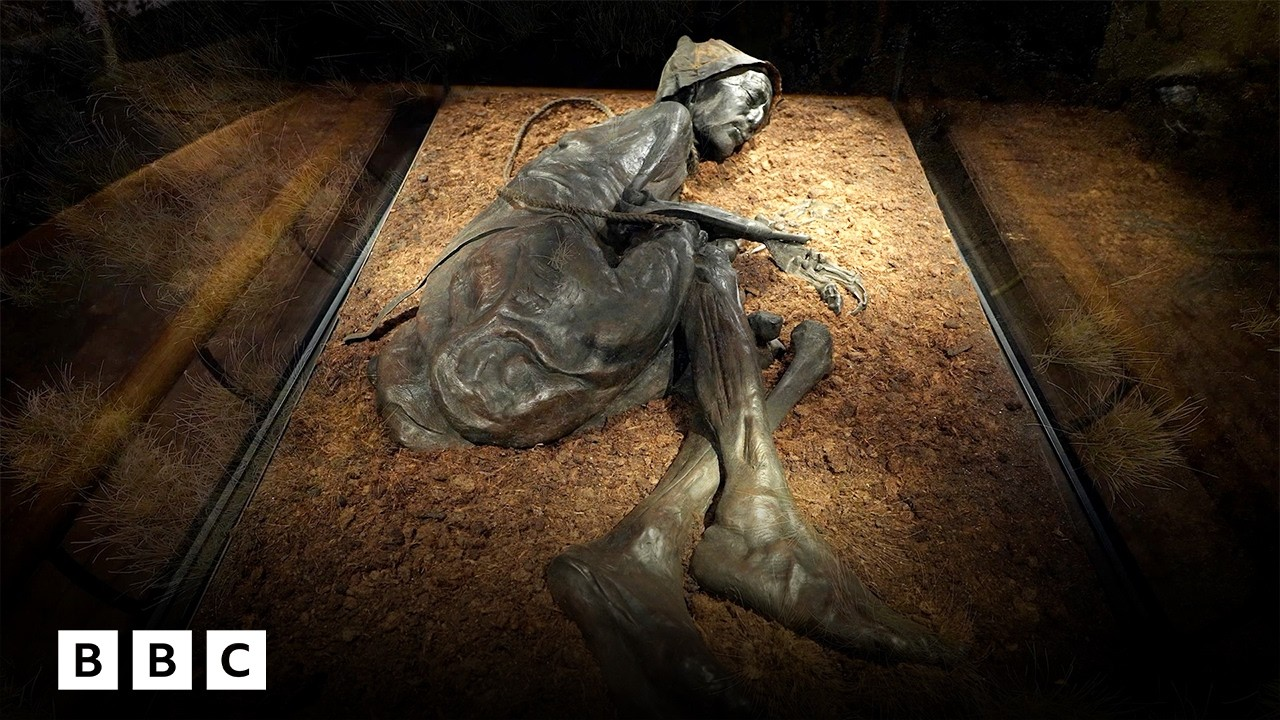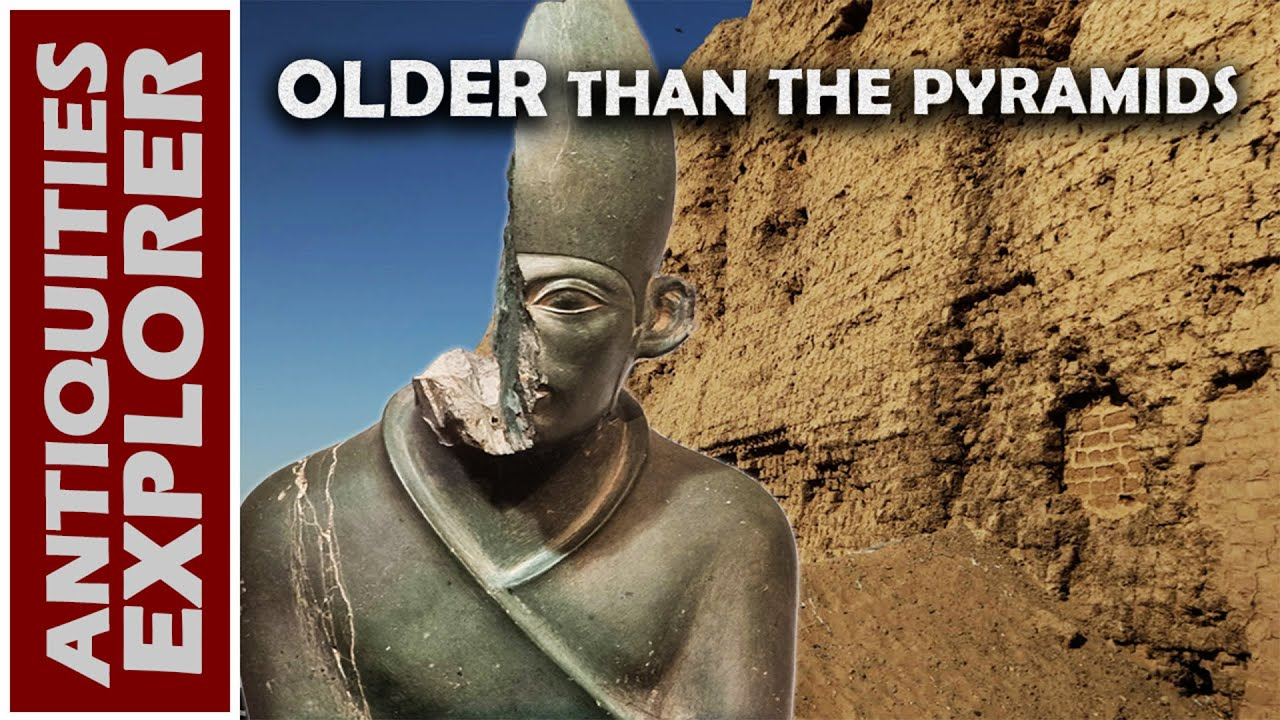In the heart of West Africa, beneath the rustling trees and vibrant markets, lives a figure both revered and feared: Anansi, the trickster spider god. More than just a mischievous character, Anansi is a central figure in Akan mythology (especially among the Ashanti people of Ghana), representing the dual nature of wisdom and deception — and the enduring power of storytelling.
Who Is Anansi?
Anansi is often depicted as a spider, a man, or a combination of both — sometimes with a human face and spider body. His name comes from the Akan word for "spider." He is neither a god in the sense of omnipotent creator nor a mere animal; he is a divine trickster, a cultural hero, and a spiritual force.
Role: Anansi is the patron of stories, knowledge, and cunning.
Personality: Clever, humorous, selfish, sometimes cowardly — but always a survivor.
Domain: Stories, fate, cleverness, justice, and even creation in some myths.
Anansi’s Greatest Heist: How He Got the Stories
In one of the most famous tales, all the world’s stories belonged to Nyame, the sky god. Anansi wanted them for humankind. To win them, Nyame gave him an impossible task: to capture four deadly creatures — a python, a leopard, hornets, and a fairy.
Anansi, using his wits rather than strength, outsmarted each one and presented them to Nyame. In awe of his cleverness, Nyame granted him ownership of all stories, declaring them “Anansi stories” from then on.
This tale symbolizes how knowledge isn’t always won through power, but through strategy, patience, and wit.
Trickster with a Purpose
Anansi isn't evil — he's morally complex. His tricks often backfire, but they also expose hypocrisy, greed, or injustice. In African societies where oral traditions were key, Anansi served as a mirror for human behavior, especially in difficult times.
Through Anansi:
Children learn life lessons wrapped in humor and suspense.
Adults reflect on power, survival, and consequences.
Societies preserve values in a form that entertains as it educates.
From Africa to the Americas: Anansi’s Journey
The legacy of Anansi traveled across the Atlantic with the enslaved African peoples, especially from Ghana and the Gold Coast, becoming a vital part of Caribbean, South American, and Southern U.S. folklore.
In Jamaica, he’s known simply as “Br’er Anansi” or just “Anancy.”
In Suriname, he appears as “Anansi Tori” (Anansi Stories).
In the American South, his influence blended with Native and European folklore, helping create characters like Br’er Rabbit.
For enslaved peoples, Anansi was a symbol of resistance — a powerless figure who outwitted the powerful, often with nothing but his brains and his mouth. He reminded people that freedom can begin in the mind, through cleverness, humor, and the preservation of one’s culture.
Anansi Today: From Folk Hero to Pop Culture Icon
Anansi’s influence lives on in:
Children’s books, especially in Caribbean and African communities.
Neil Gaiman’s “Anansi Boys”, where Anansi is reimagined as a modern-day god.
Marvel and DC Comics, which have featured Anansi as a powerful mythical being.
Folklore festivals and storytelling traditions, where he continues to spin tales and teach lessons.







